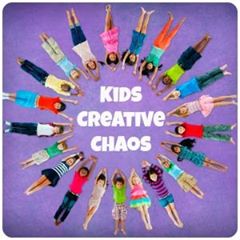Are you Struggling to get Along with your Family?
For the next series of posts, we're going to stray a little bit from our regular article topics. We often talk about parenting and share advice for parenting teens, but we've rarely talked about the relationship between two parents. Whether you're married, living together, or co-parenting after a separation, that relationship is a key factor in your parenting success. We want to model healthy, mature relationships for our children, but that is often easier said than done, especially, when you throw in all the expenses of raising a family. However, there are online sources that can help with most of life's struggles. If you're looking for free online relationship counseling, we've got your back.
This post contains Amazon affiliate links.
Is it time to take a look in the mirror?
As you know, we have a series of mommy bloggers who contribute posts to this website, they also help with our Digital Marketing business. As we get new clients, we sometimes discover that different clients' needs are better suited to one staffer as opposed to another. Sometimes, it's due to work ethic, ability to communicate on a particular topic, or even a staffer's personal passion (or lack thereof) for a subject. As the editor-in -chief of this website I also have faced conflict of interests, time constraints, or personality clashes with certain clients' content topics. One that particularly comes to mind, is what, at the time, I saw as a lack of interest in the subject matter.
After working with the client for several weeks, I came to realize it wasn’t a lack of interest that I was facing, but a lack of personal courage. While speaking to the client each week, I enjoyed the conversation and even felt a kindred spirit with her. On the flip side, I dreaded our weekly consultations. I'd find a dozen reasons to put off those weekly calls. I was consulting her on the best way to promote her articles, so calls were a necessary part of the work week. I felt miserable after our calls. I was trying to avoid that feeling. The client was a divorce consultant...
Every week, she had shiny, new articles to share and we’d discuss the best way to market them. As I read the articles to prep the marketing strategy and create striking image text, I’d become depressed. These articles were hitting home. I soon realized, I was her target demographic. I didn't like the way it made me feel. It was a slap in the face, a weekly reminder that I needed to make a change in my own life.
I also didn’t like that I was broke. I could easily benefit from utilizing her services, but I couldn’t afford it - or wouldn’t. The fee for the program was $1000. Most of us don’t have the budget for an unexpected $1000 monthly expense. If we do, our budget considers it an emergency fund for broken water pipes, a new furnace, or other homeowner’s expenses. The kind of things that you and your partner would share the blow of the expense. “Sorry, Honey, I used our emergency money for a divorce consultant.” Yeah, that’s not going to go over well for anybody, right? Keeping those kinds of secrets is exactly why you need a relationship consultant. So, most of us suffer in silence, hoping it will all work itself out. It won’t.
Fast forward two and half years later, here I am. Those articles were the catalyst I needed to start the process of removing myself from a very broken relationship. This meant shaking up the lives of many people, making difficult decisions, and hoping that I was doing the right thing. In the end, I made the right choice. Things aren’t easy, life comes at you way too fast, but emotionally, I’m in a much better place. If only I’d taken advantage of other free online marriage counseling or the many online mental health services sooner, I could’ve avoided some issues and been more prepared to help my children deal with the upheaval it placed on their lives.
We’re still working out the bugs, but all in all, it was the best decision for everyone involved. Sometimes, you just have to step back and evaluate your situation. Change is scary. If three years ago, someone would've told me that I’d own my own home, be responsible for the note on two cars, two houses, and all the other expenses that take their toll on a head of household, be a single parent with two teenagers in public school, and working outside the home, I would’ve told you that you that I couldn’t do it. Me, the advocate for “You can do it!” would’ve said, I’m not strong enough or capable enough to pull off the life of a professional single mother. I would've rather rolled up in a ball and never got out of bed.
At the time, I didn’t realize that I was depressed. I had a series of health setbacks. I’d become comfortable in my unhappiness. It was a mess, but at least I knew how everyday was going to play out. Ugh. They all played out the same way. There was no hope for the future, only hope to make it through to the next day- to survive another day. My kids had been feeling the same way. Are we all Disney happy now? No, far from it but, even in these trying times, we all have hope for the future. Stay tuned for more on this story.
Recommended:
Cognitive Behavioral Health Strategies.




















